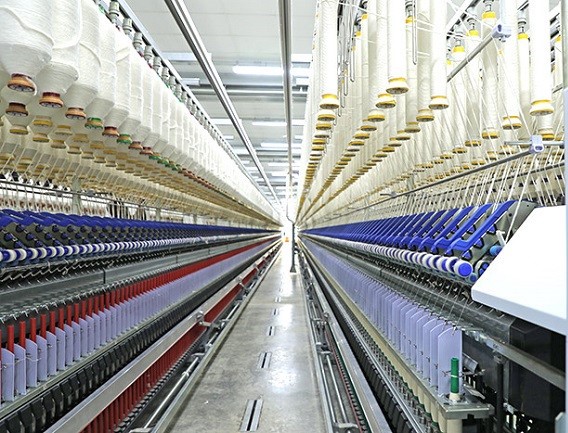Bangladesh’s textile and apparel industry is still facing order challenges from all brands and retailers due to the worldwide political and financial crisis. As a result, Bangladesh’s spinning industries are also facing order crisis demand from the export-oriented garments manufacturers. Due to the order crisis yarn price is downward. As the gas price has also gone, the selling price does not meet even the production and overhead costs. Spinning mills are still facing 40 to 50 cents loss at each unit. All the spinning mills are struggling and some are already closed due to the continuous crisis for the last 2 years.

Despite the severe crisis, the order quantities are expected to increase in the coming months as the new season is coming up. Another challenge of the sector is that the banks are not allowing the mills to open L/Cs very frequently as there are dollar crises. In recent times cotton fibre price has gone down. If the spinning mills can buy and open L/Cs for fibre purchasing then it will be beneficial for the coming orders.
But as the banks are not allowing to open L/Cs, this opportunity of lower fibre price is going in vain. If the garment order quantities increase in the coming months, spinning mills will face raw material crisis. As a result, the whole supply chain will be hampered which can also affect the on-time garments shipment. If spinning mills could capitalize on the lower fibre price they would be able to offer yarn at a competitive price in the coming future. Otherwise, garment manufacturers will go for Indian yarn which will lead spinning mills to further lose.
To face the recent challenges and to avoid a stock of unsold yarn spinning mills have already reduced the regular production quantity. At this moment, spinning mills are trying to reduce their production cost through different innovative approaches. Skill development for the workers as well as for the officers are must at this moment. Government policy support is also needed to minimize the loss of the spinning mills and also for a sustainable future business.
At this moment spinning mills are looking for survival not for maximizing profit. No new investments are being seen at this moment. If the spinning mills can’t run their business smoothly it will definitely affect the total export-oriented garment industry of Bangladesh as spinning mills play a vital role as a backward linkage industry.
Once again the associations and government should sit together and need to rethink how we can make the cotton spinning industry sustainable for the future. We should also make decisions for new investments by analyzing proper future market demand for the synthetic yarn industry. To achieve the ambitious 100 B export target we must have a sustainable and competitive spinning industry both for cotton and synthetic fiber. News Sources : Textiletoday
















